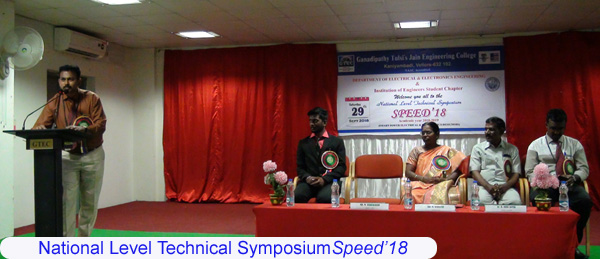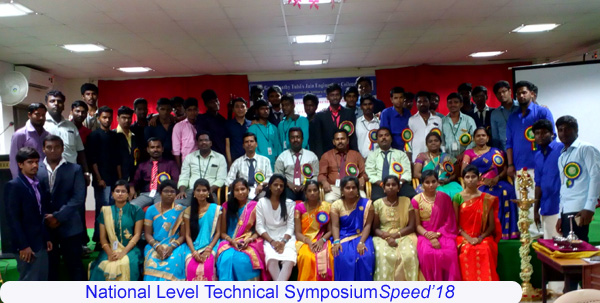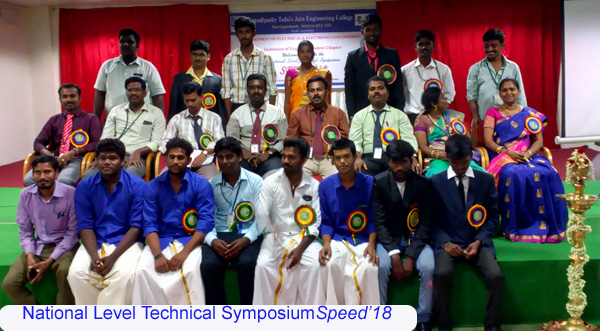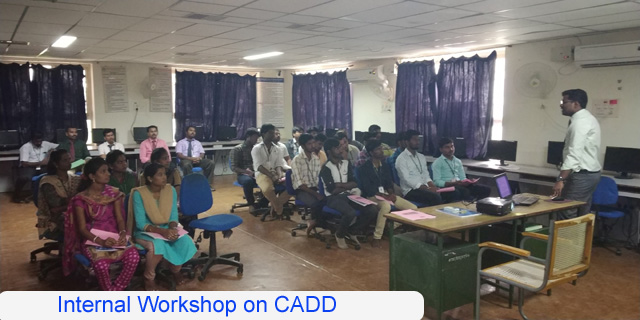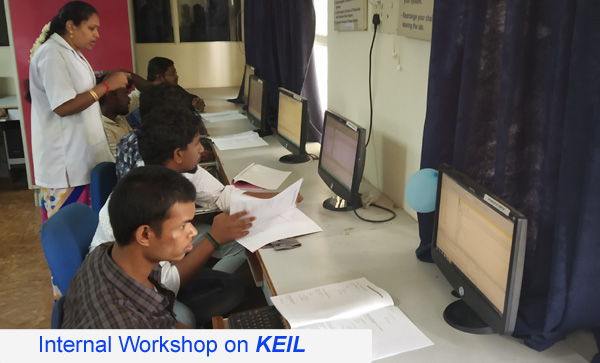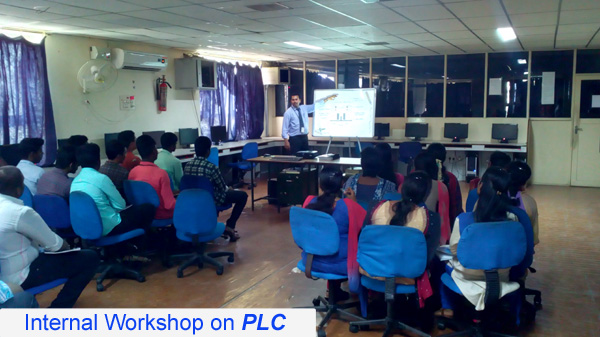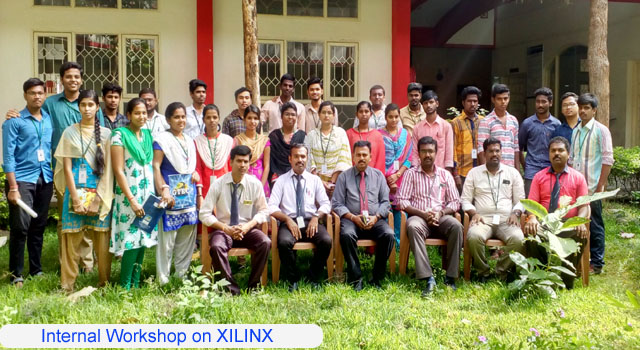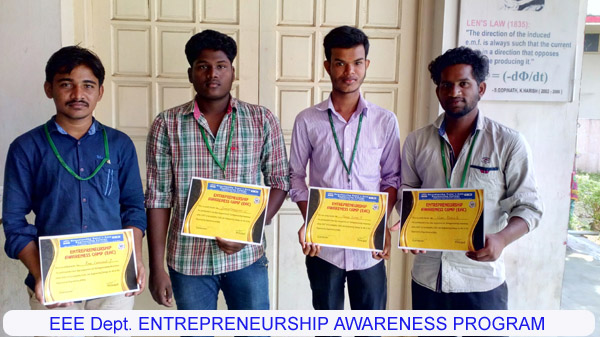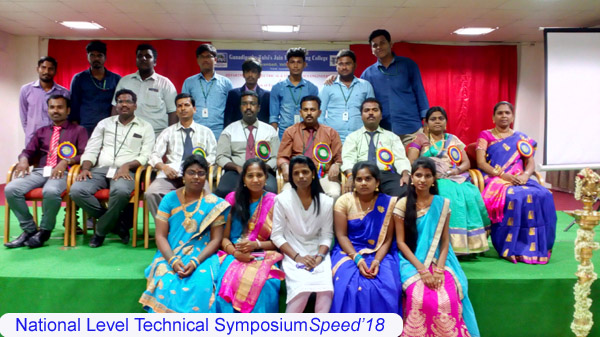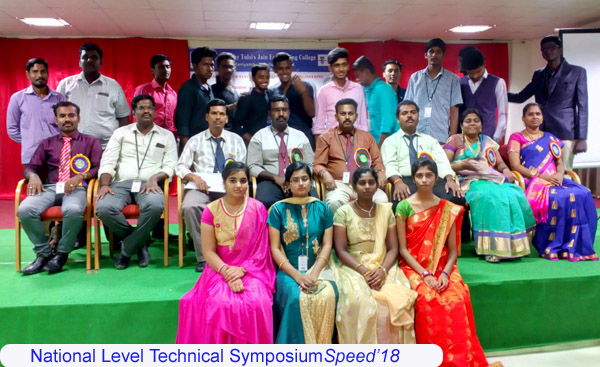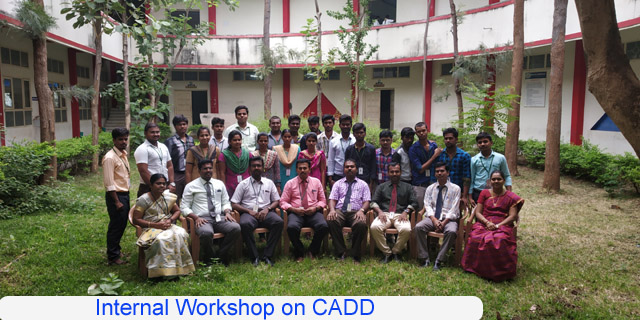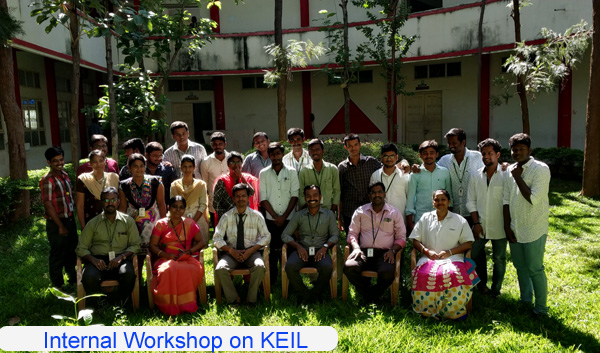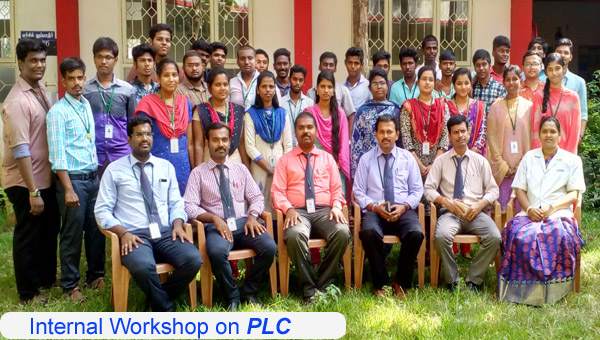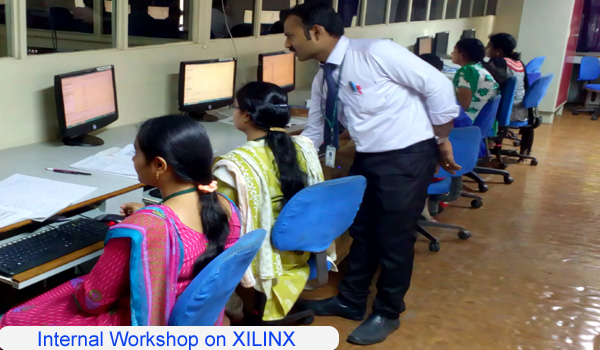The department of Electrical and Electronics Engineering was established in the year 2000 with an intake of 60 students and increased to 120 in 2012. The M.E Program in “Embedded System Technologies” was started in 2009 and the M.E Program in “Control and Instrumentation Engineering” was started in 2014.
The department has grown steadily and today it has 20 highly dedicated faculty. We are having 238 UG students and 24 PG students. The department organizes Guest Lectures, Seminars and various Training programs with the help of engineers and academicians of national and international repute to help students to keep abreast with the latest developments in the field of Electrical and Electronics Engineering. The Placement record of the department is excellent and is towering every year. The department has an excellent and progressive academic record. Above sixty percent of our students were placed in various reputed companies like TCS, Virtusa, Wipro, HP, Tech Mahindra, Infosys, L&T, CTS, HCL and so on.
Electrical and Electronics Engineering has become the main brain and nerve system in the present world of automation, computerization and industrialization. The Department of Electrical and Electronics Engineering has firm commitment to develop and produce Electrical Engineers of high technical knowledge combined with leadership skills and decision-making, design capabilities and problem solving skills. The department has spacious classrooms, and a well equipped laboratory. Electrical machines laboratory has two wings– AC and DC machines encompassing the all types of latest AC and DC machines, generators and motors with loading arrangement, thyristor controlled DC Drives operated by main DC & AC panel boards. Transformers and various starters, variacs, banks load Technical team also form part of the equipment.
Courses Offered
B.E - Electrical and Electronics Engineering
M.E - Embedded System Technologies
M.E - Control and Instrumentation Engineering
As per the curriculum of Anna University, we do have the following laboratories.
- Power Electronics Laboratory
- Electric Circuits Laboratory
- Electrical Machine Laboratory
- Control System Laboratory
- Power System Simulation Laboratory
- Measurement and Instrumentation Laboratory
Programme Educational Objective 1
Core Competence: To provide students with core competence in mathematics, scientific and basic engineering fundamentals necessary to solve electrical and electronics engineering problems to excel in professional career and/or also to pursue advanced study or research.
Programme Educational Objective 2
Breadth of knowledge: To train students with good breadth of knowledge in core areas of electrical and electronics engineering department and related engineering so as to comprehend engineering tradeoffs, analyze, design and synthesis data and technical concepts to create novel products and solution for real life problems.
Programme Educational Objective 3
Professionalism: To inculcate students to maintain high professionalism and ethical attitudes, effective communication skills, to work as part of teams on multidisciplinary projects and diverse professional environments, relate engineering issues to the society, global economy and to emerging technologies.
Programme Educational Objective 4
Learning environment awareness: To provide student with environment awareness of the lifelong learning needed for a successful professional career and to introduce them to written ethical codes and guidelines, performance excellence, leadership and demonstrate good citizenship.
The Program Outcomes of UG in Electrical and Electronics Engineering are:
1. Engineering Knowledge: Ability to apply knowledge of mathematics, science, and engineering.
2.Problem Analysis: Ability to design and conduct experiments, as well as to analyze and interpret data.
3. Design & Development of Solutions: Ability to design a system, component, or process to meet desired needs within realistic constraints such as economic, environmental, social, political, ethical, health and safety, manufacturability, and sustainability.
4.Investigation of Complex Problem: Ability to identify, formulate and solve engineering problems.
5. Modern Tools Usage: Ability to use the techniques, skills, and modern engineering tools necessary for engineering practice.
6. Engineer and Society: Knowledge of contemporary issues.
Note: Contemporary issues are those pertinent to electrical and electronics engineers entering or in the work force today. These issues are emphasized in our core courses where students are given an opportunity and encouraged to access trade journals and IEEE publications in their design activities.
7. Environment & Sustainability: The broad education necessary to understand the impact of engineering solutions in a global, economic, environmental, and societal context.
Note: This can be considered primarily a general education requirement. However there are economics and social implications of electrical and electronics engineering that are , or may be, touched upon with in EEE course themselves.
8. Ethics: Understanding of professional and ethical responsibility.
9. Individual & Team work: Ability to function on multidisciplinary teams.
Note: Multidisciplinary refers to fields that are diverse in scope and nature may include sub-discipline with electrical engineering
10. Communication: Ability to use written and communication skills effectively.
11. Project management & Finance: Understanding of Engineering and management principles and apply these to one’s own work, as a member and leader in a team to manage projects.
12. Life-long Learning: A recognition of the need for, and the ability to engage in life-long learning.
Note: Electrical and Electronics Engineering is a constantly changing discipline that, for its practitioners, clearly require “life-long learning”. This fact is often discussed in the introductory material presented in core courses and it is continually emphasized by the faculty.
UG Faculty
| S.No | Name | Qualification | Designation | Photograph |
| 1 | Dr.M.Sudhakaran | M.E.,Ph.D | Associate Prof. |  |
| 2 | Mr.D.Deepak | M.E., | Asst.Prof. |  |
| 3 | Mr.C. Yuvaraj | M.Tech., | Asst.Prof. |  |
| 4 | Mr.K.Vijayakumar | M.E., | Asst.Prof. | 
|
| 5 | Mr.S.S.Ganesh Kumar | M.E., | Asst.Prof. | 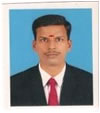 |
| 6 | Mr.S. Iyyappan | M.E., | Asst.Prof. | 
|


